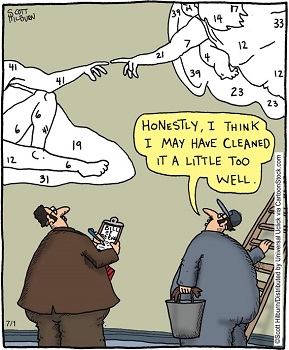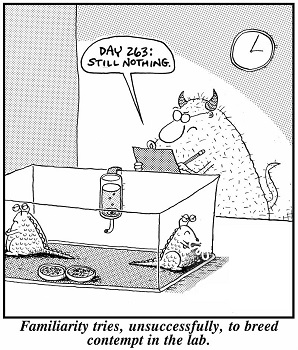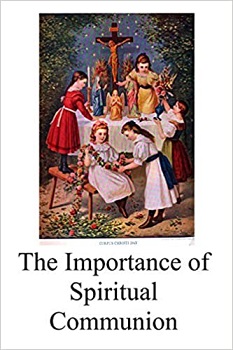February 2021: Olive Tree

Volume V/Issue 11/February 2021


From The Editorial Desk
Since this month is the month where we focus on the Holy Family, I would like to discuss:
Early Childhood Development That Prepares for School
The first five years of a child’s life lay the foundation for future failure or success. Bit by bit, they accumulate the knowledge and abilities they will need to be a complete, independent adult. From the first moment in the womb when they respond to their mother’s voice, they are processing and reacting to information given to them. The first five years of a child’s life contain a dramatic transformation from a helpless infant into a self-aware first grader. During that time, their brain develops more and faster than at any other period during his life. What skills will we equip them with to prepare them for this big step toward independence?
There are five basic areas you should consider as you prepare your child for first grade: physical, emotional, social, moral, and academic. Each of these skills develops gradually and at different rates in each child. God has created every individual with a peculiar set of gifts and challenges. Very likely, your child will excel in some areas and struggle in others.
Physical Abilities
Physical abilities are divided into gross motor skills and fine motor skills. These skills are important not only for muscle development but also for the brain processes they foster. Gross motor skills refer to the movement of large muscle groups. This involves activities such as crawling, jumping, skipping, kicking, etc. Fine motor skills refer to the ability to make precise movements with the fingers. We often call this eye-hand coordination. Examples are as simple as a baby grasping his or her mother’s finger and as complex as a preschooler cutting a paper snowflake. Children love to do these things and spend much of their playtime developing these skills. While remarkable progress is obvious from one year to the next, these skills take time and repeated practice to develop. At every age, a child needs a safe environment to practice. Clear the floor when they are learning to walk. Make sure the path is wide and open before letting them go on their bikes. Riding requires incredible coordination of balance, momentum, and direction! Yes, they will fall and hurt themselves, but the next time they try, they will do better. Success is achieved through repeated failure. Provide a time and place for him to scribble, draw, color, cut, and paste. Compliment their work! A four-year-old can create incredible creatures!
Emotional Maturity
A child is born with very little emotional control. They expresse exactly what they feel. A toddler pitches a fit when they aren't allowed to have your book. A two-year-old will flop on the floor and scream when they are denied a cracker. Parents are responsible to teach a child how to properly express their feelings. Proverbs 16:32 says, “The patient man is better than the valiant: and he that ruleth his spirit than he that taketh cities.” We cannot remove our child’s emotions; nor would we want to. Emotions - even negative emotions such as fear and sorrow - are natural and right. A child must learn first to control their actions in spite of their emotions and then to communicate their emotions properly to others. Instead of hitting their brother in a fit of rage for stealing his toy, he must be taught to control their anger and ask an authority to set things right. This applies to all negative emotions: fear of the dark or unknown, anger at real or perceived mistreatment, disappointments for not receiving something expected, frustration in difficult circumstances. A child eventually will learn that all of these are a normal part of life. Parents who equip their child to properly handle their spirit in the face of life’s challenges give him a priceless gift.
Parents also need to give their children a proper level of self-confidence. Parents who consistently criticize their child’s efforts communicate that they is a failure. A child needs confirmation that they are loved and valued for who they are. they crave the approval of their parents and strives to earn compliments. Insincere or undeserved compliments may actually backfire and cause them to base their values on whether they receive praise and not for doing a task to the best of his ability.
Social Skills
Before a child is ready for school; they will also need to learn social skills. God made us social creatures. We enjoy being with other people. To have working relationships, we need to follow some basic rules. First, a child must learn that other people have desires and preferences too. Their favorite game is not everyone’s favorite game. Sometimes they need to play a game they dislike. They need to learn to share and take turns. They don't always need to be at the front of the line. We call it the Golden Rule: Do unto others as you would have them do unto you. Second, a child should learn to allow others to talk. This is easier for some children than others. Proverbs 18:24 says, “A man that hath friends must shew himself friendly.” Teach your child to take an interest in what others know. Teach them not to dominate the conversation but to allow others to add their perspective. Thirdly, a child should learn to use good manners. A simple “Please,” “Thank you,” or “I’m sorry” goes a long way to making smooth relationships in the classroom. If you teach your child to use common courtesies with his or her siblings as he grows, it will be a habit by the time they enters first grade. Lastly, teach your child to care for himself. Teach them to blow their nose, tie their shoes, and tuck their shirttail in or sit lady like. Their teacher may need to remind them occasionally, but they should be accustomed to good hygiene before they are old enough to venture out on their own.
Moral Character
A child’s moral character is the most important area a child needs to develop before going to school. I see two reasons for this. First, the early years form the child’s view of their world. They establish relationships with their parents and siblings. They understand how they fit into the social structure of their family. They come to understand that they are a unique individual. How do their siblings treat them? How do they respond when he or she are kind or mean to them? As they explore their world and its boundaries, they begin their life-long adventure of learning. Secondly, their concept of right and wrong creates the framework for how they will approach life. Does “No” really mean “No”? Do they always need to obey direction? What will happen if they do what they want to do? They begin to develop a perspective of the nature of authority. While they will eventually come to understand that not all authorities behave in the same way, it is in childhood that they realize that authority is either a force to be respected and obeyed or a tool to be manipulated and used. The framework that you build for your child will be with them for life. Proverbs 22:6 states, “Train up a child in the way he should go: and even when he is old he will not depart from it.” There are exceptions to this general statement. However, those who walk away from Truth will always carry its knowledge in their conscience.
The primary purpose of our schools is to educate our children in a God-centered atmosphere. The teacher will need to discipline at times, but that is not their primary responsibility. A child who has a healthy respect and appreciation for authority, frees the teacher to teach. By the time a child enters school, they should be in the habit of obeying promptly. They should take responsibility for their actions. They must be honest, even when it may hurt them. They must be used to a conscience kept clear and pure by consistent discipline.
Academic Achievement
Lastly, we come to academic skills. In some ways, these skills require the least amount of energy from a parent. The teacher’s job is to teach. If a child has learned to listen and control their spirit, they will be able to use their time in school to great advantage. Children love to learn. Most of their play activities center around the skills that they are learning. Stacking blocks can teach them to count and identify the shapes/letters/numbers on each block. Simple puzzles teach them to identify and match shapes. A Memory game helps them to recall the location of a picture. Crayons help them to identify the colors of objects in the real world. Identifying the letters of their name and tracing them brings particular excitement. Playing house sparks the imagination in acting out the role of someone other than themselves.
Giving your child regular chores also develops important learning skills. Most chores incorporate various aspects of academics. Something as simple as setting the table may include multiple skills. they may need to count the number of place settings, so they have the right number of cups. You may ask them to set the table in a sequence, so nothing is missed. As they do these chores, they develop thought processes that will help them in school.
As we consider the wonderfully complex process of growing and learning, Let us echo the words of the psalmist, “I will praise thee, for thou art fearfully magnified: wonderful are thy works, and my soul knoweth right well.” God bless you with wisdom as you prepare your toddlers for school.

Spiritual Spring Cleaning

The holy season of Lent starts on February 17th this year (2021). Lent is a good time for some spiritual spring cleaning. Throughout the year it is easy to slip back into some of our bad habits. It is time to ask God to help us return to a life of good habits and virtue. The good news is that researchers believe it only takes three weeks to establish a habit and Lent is well over that, being forty days.
There are several things we need to keep our eyes on, how we spend our time, how we spend our money and what we think about. Let us analyze these more closely.
The first thing about most sins is that it takes time to commit them. The only exception are sins of omission, when we spend our time doing something other than what we should be doing. A good practice is to track how we use our time for a week. After that week we can sit down and consider how we can use our time better. Of course some of our time is already committed for us, such as time devoted to work and time we devote to the necessity of sleep. What changes do we need to make in our life? When are we most tempted to a particular sin or even go so far as to actually commit it? At the time we are most likely to be tempted, let us be busy about something good, so that we are not likely to even think about our sin. Married people should consider, am I spending quality time with my spouse and children? In his book, The Clock of the Passion, Saint Alphonsus says that the Passion began in the Garden of Gethsemane as this is the time of day, when sin increases. Consider the sins we have committed after eight in the evening.
Another good practice is to track how we use our money for a month, because how we use our money shows what we truly think is important. Like our time, some money is already committed, such as payments for housing and transportation. However, a look at our grocery bill may show that we are over indulging ourselves. How else are we spending our money? Are we taking care of our own family? "But if any man have not care of his own, and especially of those of his house, he hath denied the faith, and is worse than an infidel." (1 Timothy 5:8)
And it is a good time to distinguish between needs and wants. We need to eat, but we want T-bone steak. Maybe we can't afford steak. What are we buying, that we do not really need? Often, when one needs to save money, the best place is the grocery store, if one lives frugally otherwise. Of course, if one is extravagant, there are other places to begin. For instance a fancy coffee five days a week costs over $750 per year. Look at these luxuries that we are wasting money on, when there are better places to spend money. How many of us contribute $750 per year to God's work? What are our priorities, and priorities is another good thing to look into. What do we do, when we need to make a quick decision?
Then what is is in our mind? What do we think about? Does Scripture come often to our mind? Or is what is there less useful or even possibly sinful? It is time to ask God to purify our minds. We cannot have a pure heart, if we do not also have a pure mind.
The prophet Ezechiel tells us: "And I will give them one heart, and will put a new spirit in their bowels: and I will take away the stony heart out of their flesh, and will give them a heart of flesh: That they may walk in my commandments, and keep my judgments, and do them: and that they may be my people, and I may be their God." (Ezechiel 11:19-20) Sin hardens our heart, whether it be venial or mortal.
Let us focus on our attitude towards sin. First of all, if we have mortal sin in our lives, it must go immediately. We cannot put off our conversion, because we are not promised tomorrow. And conversion is a complete change of customs and habits. Notice the word complete. This is where we need to get serious. What is our attitude towards venial sin? Do we dismiss it as nothing? Do we think: "It is only a venial sin." This is like saying: "It is only a mild poison." The thing is, sin is a poison that slowly kills our soul. Wisdom tells us: "and he that contemneth small things, shall fall by little and little." [Ecclesiasticus 19:1] By dismissing venial sin as a small thing and not asking God to help us remove it from our lives, is setting ourselves up for disaster. This lax attitude is the road towards hell.
Let us examine our conscience and see what sins we need to address in our lives. Let us be thorough in this examination of conscience. Of course, mortal sin must go first. The next thing among our pet sins we need to consider are our deliberate habits of venial sin. The only difference between deliberate venial sin and mortal sin is the gravity of the matter. Let us consider sin like a hungry lion. Why are keeping a hungry lion in our house, when we know he will eat us? Habits of sin are more dangerous than a hungry lion, for they kill the soul. Deliberate venial sin is like a slow poison. It weakens us, so that when the big temptation comes, we are far more likely to commit mortal sin. And so, we must make war on deliberate venial sin, especially our habits of sin. Let us ask God to do the spiritual heart surgery we read about, removing our heart of stone and replacing it with a heart of flesh.
"For a just man shall fall seven times and shall rise again: but the wicked shall fall down into evil." (Proverbs 24:16) This refers to indeliberate venial sin. For instance saying a four letter word, when we stub our toe. But even this should be worked on.
However, our focus needs to be positive, rather than negative. If we are busy about doing good, we are far less likely to sin. If we fill our time with good things, such as reading the Sacred Scriptures and other holy books, we are more likely to pursue a life of virtue. If we are busy helping others, we are focusing far less on our own selves and our own desires, many of which are not what we need to pursue any way.
Let us this the best Lent of our lives with our spiritual spring cleaning.

On Receiving What You Pray For

But just as many prayers are answered, there are many prayers are remain unanswered. (Of course, God anwers all our prayers. Though it seems it takes time.) What is the reason why some of the things we pray for are still pending before the court of the Almighty God?
In the Luke 18, Our Lord Jesus Christ speaks of the parable of a just judge. There was a judge who didn't fear anyone, rich and poor, influential or marginalized, all of them were treated the same. But one day, the judge realized the poor woman who came to him persistently. Because the woman never gives up, the judge decided on her favor.
In order to manifest what we want in life, we need to have a consistent spirit. We have to have a focus. Many do not receive what they asked from God since their mind is a fickle mind. They do not receive their petition because they easily give up and are lacking in patience. For example, Andres is ardently praying for an opening of business. Then, he realized it's impossible, it's too impossible. That is tantamount to not wanting the business. Hence, his prayers will not materialize.
A consistent prayer is necessary if you want to realize your dream. This is what we call faith. Faith is the only way to please God. If we have a child-like confidence and it's unwavering, your prayers will come to pass.

The Beautiful Heart of Mary

What do you usually keep in mind? What do you more often ponder in your heart? How badly you have been treated by someone? How were you maligned? The moment you failed in the job interview? The moment your best friend betrayed you? We normally cater to negative experiences. But The Blessed Virgin Mary has shown up the good example of what all of us should be catering to our memories: the marvelous works the Lord has done to us.
Every shepherd in the Bible has a staff. This is not just to assist them in their walking or climbing a valley, this is not also to drive away the enemies of their sheep but moreso in order to remember the important event that took place in their history. Since most of them are nomadic, they need a piece of wood where in they can put a marker as a reminder of good memories they had in the past. We should also retain some objects in our room that reminds us of our success. We should place a marker in our homes for the dreams which we want to happen in following days. This will help us to fuel the fire within us. This will help us to fan the flame. This will make us more enthusiastic in our love for God.
In my own room, I kept a crucifix to remind me that God is love. The Crucified Christ reminds me that this is how God demonstrates His unconditional love for me even though I am a sinner. This is how I emulate the Blessed Virgin Mary. This is how I emulate Mary's beautiful heart.

The Funny Pharmacy
A joyful mind maketh age flourishing: a sorrowful spirit drieth up the bones. - Proverbs 17:22






Frequently Asked Questions

What Did Jesus Mean When He Said "Do Not Judge That You Be Not Judged"?
Time and Time again people love to use the phrase “Judge not that ye be not judged” It has been misused and misinterpreted over the years.
Some of us have wrongly judged another person and have sinned in the process. In our rush to judgment, in our haste to make sure someone else takes the blame, in our zeal to find the guilty party, we have violated the words of Jesus in Matthew 7:1, “Judge not, that you may not be judged”. The words are simple and clear. They are plain and unambiguous. Because they are familiar we tend to forget about them. Or worse, we find a way to explain them away.
There are several ways we can approach a text like this. We could spend a lot of time talking about the illustration Jesus used about the speck in your brother’s eye and the log in your own eye. It’s funny and ironic and when Jesus spoke these words, I’m sure his hearers laughed out loud. I’ll return to that illustration shortly but first let’s just focus on verse 1. What exactly did Jesus mean when he said, “Judge not"?
Perhaps it is easier to say what he did not mean. Jesus is not saying we should never pass any sort of judgment. Every day we make hundreds of judgments about things around us. It is not wrong, for instance, to sit on a jury and render a verdict. Nor it is wrong for an admissions committee to decide which students to accept and which to reject. Nor it is wrong for an employer to decide who gets a promotion and who doesn’t. Nor is it wrong for schools to judge certain students worthy of high honor at graduation. Nor is it wrong for a High School to expel students who participate in hazing incidences and to ban them from attending graduation ceremonies. We all have to make decisions every day that involve other people. We pass judgment on appearance, behavior, speech, deportment, attitude, work ethic, productivity, keeping or breaking a promise, guilt or innocence, which person we believe and which person we do not believe. Whatever the words of Jesus mean, they can’t mean that we never pass judgment in any sense at any time.
What, then, did Jesus mean when he said, “Judge not?” The word translated “judge” often means to condemn. It means to come to a negative conclusion about another person and then to condemn them. That is what Jesus is forbidding. Let me be a little more specific about this.
First, we are not to pass final judgment on any person. Final judgment belongs to the Lord. If anyone needs to be condemned, God has that responsibility himself. We should have no part in it.
Second, we are not to judge the motives of others. The Bible says, “man seeth those things that appear outwardly, but the Lord beholdeth the heart. ” (I Samuel 16:7). Often we are quick to come to negative conclusions about others based on why we think they did something. But try as we might, we see only the outside. God alone sees the heart.
We can judge what people do; we cannot judge why they do it.
We can judge what people say; we cannot judge why they say it.
Only God can judge the hidden secrets of the heart. Leave that judgment to him. You don’t even know your own heart, much less the heart of anyone else. “The heart is perverse above all things, and unsearchable, who can know it?” (Jeremiah 17:9). Sometimes when little children have been caught disobeying and you ask them why they did it, they will reply tearfully, “I don’t know.” That’s not a cop-out; it’s a profound theological truth. We are so wicked by nature that we don’t know why we do what we do. All of us can remember times when we did or said something foolish, and looking back we can honestly say, “I don’t know why I did something stupid like that.” But if we can’t understand our own heart, how can we ever presume to understand anyone else's?
For answers to more frequently asked questions, click here: https://www.vaticaninexile.com/frequently_asked_questions.php
The Pope Speaks: February 2021
Admonition to Traditional Minded Catholics

"Awake, O sword, against my shepherd, and against the man that cleaveth to me, saith the Lord of hosts: strike the shepherd, and the sheep shall be scattered: and I will turn my hand to the little ones." (Zacharias 13:7)
One interpretation of the shepherd here is the Pope and the sheep are the Bishops of the Church. Two Popes, Benedict XIV and Pius IX mentioned this in reference to John 21:15-17, where Jesus commands Peter to feed the lambs and sheep. They state that the lambs are the faithful, whereas the sheep are the Bishops.
When the shepherd is struck, the sheep are scattered to the four winds. Traditional minded Catholics believe that this has happened in some manner, although they may disagree on details.
What does the Holy Ghost tell us through Zacharias? When the shepherd has been struck and the sheep scattered, God will turn His hands to the little ones. What we should take away from this is that we should be those 'little ones'. Jesus puts it this way: "Amen I say to you, unless you be converted, and become as little children, you shall not enter into the kingdom of heaven." (Matthew 18:3)
Let us continue further in the holy Gospels and learn how to be little: "At that hour the disciples came to Jesus, saying: Who thinkest thou is the greater in the kingdom of heaven? And Jesus calling unto him a little child, set him in the midst of them, And said: Amen I say to you, unless you be converted, and become as little children, you shall not enter into the kingdom of heaven. Whosoever therefore shall humble himself as this little child, he is the greater in the kingdom of heaven." (Matthew 18:1-4) We must be as humble as a little child.
Proverbs (9:4): "Whosoever is a little one, let him come to me."
How do we become little, when we must educate our self on deep matters in order to make sure we are worshiping God as He wills and not as other people will? We need to humbly come before God and ask Him to guide us and our studies. "Pride goeth before destruction: and the spirit is lifted up before a fall." [Proverbs 16:18] All of these studies we are making can tempt us to be proud of what we have accomplished. This is especially true of those who have received Holy Orders in this time. Unfortunately Holy Orders does not bring knowledge or wisdom. These are gifts of the Holy Ghost we stand in great need of. Let us ask the Holy Ghost for these graces, remembering: "God resisteth the proud, and giveth grace to the humble." [James 4:6]
Let us step back and ask our self: "Why am I doing all of this deep study?" In normal times, when questions arise, we simply went to our pastor. If it was more complicated, we would go to our Bishop. Indeed, our pastor is advised to take deeper matters to our Bishop or even to the Pope himself.
By undertaking this study our own selves, we are admitting that we do not have a pastor to go to for true guidance. We may have men, who call themselves our pastor, but deep down we know they are not. Consider why people abandon one traditional minded priest for another. Have you made this choice in the past? Jesus founded His Church on a rock, as we well know. (Matthew 16:16-19) By Divine Law Jesus instituted the offices of Pope and of Diocesan Bishop. The Church has added other offices, the most important is that of Pastor of a parish. Typically everyone lives in a parish. That parish is in a diocese. Missionary territories are somewhat different, but the principles are the same. Our Pastor has the authority to teach and guide us on the road to heaven. We look to our Bishop to do the same. We do not parish hop, but assist at the Preaching of the Word of God and the Mass in our own parish. We confess to our Pastor or one of his assistants. We receive spiritual guidance in our own parish.
What has happened is that the Shepherd (Pope) has been struck and the Sheep (Bishops) have scattered and left us without a Pastor. And so we have taken things into our own hands and decided where we will go to hear the Word of God. Some have accused traditional minded Catholics of being Protestant, who go church shopping to find the pew that is comfortable for themselves. Traditional minded Catholics don't want to be Protestant, but by trying to preserve the validity of Mass and Sacraments, people have lost sight of what is more important, as Saint Athanasius says: "It is a fact that they have the premises, but you have the Apostolic Faith. They can occupy the places of worship, but the faith dwells within you. Let us consider: what is more important, the place or the faith? The true faith, obviously. Who has lost or who has won in this struggle, the one who keeps the premises or the one who keeps the faith?" It is the Faith that matters, even if we do not have buildings in which to worship.
Let us look back to the Constitutional clergy in France, who were excommunicated for compromising with the government. They had valid Masses, but Catholics were forbidden to go. More is required than validity. Priests and bishops must have been sent by Almighty God through His holy Church: "He said therefore to them again: Peace be to you. As the Father hath sent me, I also send you." (John 20:21) Note well this happened after the Resurrection and therefore after the Apostles had already been ordained. The Pope, Diocesan Bishops and the Pastors receive authority to preach the Word of God and administer the Sacraments to their flocks. Other priests can be delegated some authority to administer the Sacraments legitimately as well as validly.
"Awake, O sword, against my shepherd, and against the man that cleaveth to me, saith the Lord of hosts: strike the shepherd, and the sheep shall be scattered: and I will turn my hand to the little ones." (Zacharias 13:7)
The main thrust of the ministry of the Church is to help you become a saint. Sanctity includes reverence for the Sacraments. The Sacraments do not make us saints, although received properly they are a very great help. The Cure of Ars says that the preaching of the Word of God is more important than the reception of the Holy Eucharist. Saint Paul asks: "And how shall they preach unless they be sent," (Romans 10:15) The answer is they may talk about the Word of God, but without being sent God is not going to bless their words as much, although God does sometimes work in strange ways to perform His mysteries.
You may be here, trying to find out just where the pastor is. We hope you find out how to become a saint, because without sanctity these questions are hard, if not impossible to understand. Let us put first things first. Let us learn to live the Gospel, because this is most important. After we have learned to live the Gospel, God will help us figure out where the Pope truly is.


Saint Mark the Ascetic
On The Spiritual Law

70a. He who toils unwillingly grows poor in every way, while he who presses ahead in hope is doubly rich.
71. Man acts so far as he can in accordance with his own wishes; but God decides the outcome in accordance with justice.
72. If you wish not to incur guilt when men praise you, first welcome reproof for your sins.
73. Each time someone accepts humiliation for the sake of Christ's truth he will be glorified a hundredfold by other men. But it is better always to do good for the sake of blessings in the life to come.
74. When one man helps another by word or deed, let them both recognize in this the grace of God. He who does not understand this will come under the power of him who does.
75. Anyone who praises his neighbor out of hypocrisy will later abuse him and bring disgrace upon himself.
76. He who is ignorant of the enemy's ambush is easily slain; and" he who does not know the causes of the passion sis soon brought low.
77. Knowledge of what is good for him has been given to everyone by God; but self-indulgence leads to negligence, and negligence to forgetfulness.
78. A man advises his neighbor according to his own understanding; but in the one who listens to such advice, God acts in proportion to his faith.
79. I have seen unlearned men who were truly humble, and they became wiser than the wise.
80. Another unlearned man, upon hearing them praised, instead of imitating their humility, prided himself on being unlearned and so fell into arrogance.
Saints from East and West

20 February - Saint Leo, Bishop of Catania.
Saint Leo was bishop of the city of Catania, in Sicily. He was famed for his benevolence and charity, and his Christian love for the poor and the vagrant. The Lord granted him the gifts of healing of various illnesses, and also wonderworking.
During the time when Saint Leo was bishop in Catania, there lived a certain sorcerer magician named Heliodorus, who impressed people with his fake miracles. This fellow was originally a Christian, but then he secretly rejected Christ and became a servant of the devil. Saint Leo often urged Heliodorus to be done with his wicked deeds and return to God, but in vain. One time Heliodorus got so impudent that, having entered into the church where the bishop was celebrating Divine services, he by his sorcery sowed confusion and temptation there, trying to create a disturbance. Seeing the people beset by devils under the sorceror's spell, Saint Leo realised that the time of gentle persuasions had passed. He calmly emerged from the altar and, grabbing the magician by the neck with his omophorion, he led him out of the church into the city square. There he forced Heliodorus to own up to all his wicked deeds; he commanded a bonfire be built, and without flinching he jumped together with the sorcerer into the fire, while having on his omophorion. Thus they stood in the fire, until Heliodorus got burnt, while by the power of God Saint Leo remained unharmed. This miracle while still during his lifetime brought Saint Leo reknown. When he died, at his grave a woman with issue of blood received healing. The body of the saint was placed in a church of the holy Martyress Lucy, which he himself had built, and later on his relics were transferred into a church of Sainted Martin the Merciful, Bishop of Tours.

11 February - Pope Saint Gregory II.
Gregory was born in Rome, and being conspicuous for his piety and regular observance, Pope Saint Sergius I ordained him subdeacon. Under the four succeeding popes he was treasurer of the church and afterwards library-keeper and was charged with several important commissions. So great was his wisdom and learning that he was chosen to accompany Pope Constantine to Constantinople when he was summoned there to discuss with the Emperor Justinian II certain difficulties and differences which had arisen from the Council in Trullo in 692. Upon the death of Constantine, Gregory was chosen pope and consecrated in 715.
With unwearied zeal and watchfulness he laid himself out to extirpate heresies on all sides and to bring about a reformation of manners. He held synods in which regulations were made to enforce discipline, to promote morality and to check abuses of all kinds. He re-erected a great part of the walls of Rome against the Lombards, rebuilt and restored many churches, and was very solicitous for the sick and aged. Besides a hospital for old men, he rebuilt the great monastery near the church of Saint Paul in Rome, and, after the death of his mother in 718, he converted her house into the monastery of Saint Agatha. He helped to re-establish the abbey of Monte Cassino, to which he sent the abbot Saint Petronax to take upon him the government, one hundred and forty years after it had been laid in ruins by the Lombards. Saint Gregory commissioned missionaries to preach the faith of Christ in Germany, consecrating Saint Corbinian and Saint Boniface bishops, and under him the English pilgrims in Rome increased to the point of requiring a church, a cemetery, and a school of their own there.
Perhaps, however, it was in his dealings with the Emperor Leo III that Gregory most fully displayed his strength and magnanimity. Leo ordered the destruction of holy images and enforced the execution of his edicts by a cruel persecution. Saint Germanus and other prelates in the East endeavoured to convince him, but finding him obdurate they refused to obey, and appealed to the pope. Gregory long continued to use entreaties and arguments, and yet all the time strenuously en couraged the people of Italy to maintain their allegiance to their prince. When rebellions arose in Siciiy, Ravenna, and Venice he effectually opposed them; on the other hand, by his letters he encouraged the pastors of the Church to resist the heresy which the emperor endeavoured to establish by violence. Saint Gregory II was pope for fifteen years, dying in the year 731.


Books to feed your faith!
Will the Real Catholic Church Stand Up?
Kindle $2.99 / Paperback $9.95
Available free on Kindle, February 11 & 12, 2021!
The Seven Last Words of Our Lord Jesus Christ on the Cross
$4.00
The original of this little work was written by Cardinal Bellarmine towards the close of his life, when he had retired to the House of his Order at San Andrea. It was intended primarily for religious, but the thoughts it embodies should help many to follow the author in his faithful imitation of Christ Crucified. In the attempt to give the gist of St. Robert's work in a few pages, much condensation and much omission was necessary. This will account, in some measure, for the abrupt transition of thought noticeable in a few places.

The Passion of Jesus Christ from the Mystical City of God
$14.99
This work is extracted from the four volume set, the Mystical City of God by Mary of Agreda, being a life of the Blessed Virgin Mary. Father Solanus Casey strongly recommended reading this work as have other priests over the centuries. This work will be useful for meditation during Passiontide and Holy Week and at other times, when devout Catholics wish to meditate on our Lord's Passion.
The Stations of the Cross and the Stations of the Passion as observed in Jerusalem have been added. Saint Augustine says, that there is nothing, more condusive to the attainment of eternal salvation, than to think every day on the pains which Jesus Christ hp,s suffered for the love of us. "Nothing is more salutary than to think daily on what the Man-God has endured for us." And before him, Origen said, that sin cannot reign in the soul that frequently meditates on the death of the Saviour. "It is certain that, when the death of Christ is carried about in the soul, sin cannot reign in it." Besides, our Lord revealed to a holy solitary, that there is no exercise better calculated to kindle in the heart the fire of divine love, than the nleditation of his passion. Hence, Father Balthazzar Alverez used to say, that ignorance of the treasures we have in the passion of Jesus Christ, is the ruin of Christians. Hence, he would tell his penitents, that they should not consider thelnselves to have done anything until they had succeeded in always keeping in the heart Jesus crucified. According to St. Bonaventure, the wounds of Jesus are wounds which soften the hardest hearts, and inflame the most frozen souls. "0 vulnera," exclaimed the saint, "corda saxea vulnerantia, et mentes congelatas inflammantia."

The Importance of Spiritual Communion
Kindle $2.99 / Paperback $5.99
If we cannot receive Holy Communion actually, then let us do so spiritually. These prayers and instructions have been gathered from the Saints and other venerated spiritual writers. Spiritual Communion has been a part of the spiritual life for decades. Growing up I was instructed to make a Spiritual Communion, when I could not go to Communion such as when I assisted at a second Mass. The same is true if one finds oneself at Mass, but not fasting. There are times coming, when it will be difficult, if not impossible to assist at the Holy Sacrifice of the Mass. We should be prepared for such times.
For More Good Traditional Catholic Books:

Grandmother's Own Cabbage Rolls

Prep: 30 mins
Cook: 2 hrs
Total: 2 hrs 30 mins
Yield: 12 servings
Ingredients
2 cups uncooked long-grain rice
4 cups water
2 large heads savoy cabbage
1 cup water
2 onions, chopped
3 tablespoons butter
¾ cup uncooked long-grain rice
1 pound extra-lean ground beef
½ pound pork sausage
4 cloves garlic, minced
2 teaspoons dried dill weed
¾ teaspoon salt
½ teaspoon ground black pepper
½ teaspoon white sugar
1 (26 ounce) can condensed tomato soup
1 (28 ounce) can whole peeled tomatoes, with liquid
8 bay leaves
Directions
1 Wash rice thoroughly. In a medium saucepan, combine 2 cups rice and 4 cups water. Bring to boil; reduce heat, cover and simmer for 20 minutes or until all of the water is absorbed.
2 In the meantime, remove the core from the cabbages using a thin, long knife. Place 1 cabbage in a microwave proof container with a lid with core side down. Pour 1/2 cup water into the container with the cabbage, cover and microwave on HIGH (full power) for 10 minutes. Carefully turn cabbage over and cook covered for an additional 10 minutes. When cabbage is cooked, let sit until it is cool enough to handle. Separate leaves carefully, removing any tough ribs. Cook the second cabbage in the same manner.
3 Divide chopped onions in half. Saute one half of the onions in 3 tablespoons butter; cook just until translucent (do not brown). In a large mixing bowl, mix together both the cooked and uncooked rice, cooked and uncooked onions, ground beef, pork sausage, garlic, dill weed, salt, black pepper and sugar and mix well to blend.
4 Spoon about 2 tablespoons of mixture onto each cabbage leaf. Bring one end of cabbage leaf over mixture, roll and tuck ends in to prevent any filling from falling out.
5 Preheat oven to 350 degrees F (175 degrees C). Prepare two 9x13 inch casserole dishes by placing some left over cabbage leaves in bottom of each. Arrange cabbage rolls in a single layer tight against each other.
6 In a food processor or blender, process condensed tomato soup and tomatoes. Pour tomato mixture over the cabbage rolls until just covered. Place 4 bay leaves on top of sauce in each dish. Cover each dish tightly with aluminum foil.
7 Bake in a preheated 350 degrees F (175 degrees C) oven for 2 hours. Once cooked, remove the dishes from the oven and let cool for 15 minutes before removing aluminum foil. Serve hot.
Super Easy Mardi Gras King Cake

Prep: 15 mins
Cook: 50 mins
Total: 1 hr 5 mins
Yield: 12 servings
Ingredients
3 (14 ounce) cans refrigerated sweet roll dough
2 (12 fluid ounce) cans creamy vanilla ready-to-spread frosting
¼ cup milk
2 drops green food coloring
2 drops yellow food coloring
1 drop red food coloring
1 drop blue food coloring
½ cup multi-colored sprinkles
Directions
1 Preheat oven to 350 degrees F (175 degrees C). Grease a baking sheet.
2 Open the cans of sweet roll dough and unroll the dough from each can into 3 strands. Working on a clean surface, place 3 dough strands side by side and gather them together to make one large strand. Fold this in half, and roll slightly to make a fat log. Repeat steps with the remaining dough. Place each log on the prepared baking sheet and shape to make a ring, overlapping the ends and pinching them together to make a complete circle. Pat the dough into shape as necessary to make the ring even in size all the way around. Cover loosely with foil.
3 Bake in preheated oven until firm to the touch and golden brown, 50 to 60 minutes. Check often for doneness so the ring doesn't overbake. Place on a wire rack and cool completely.
4 Place the cake ring on a serving plate. Cut a slit along the inside of the ring and insert a small plastic baby, pushing it far enough into the cake to be hidden from view.
5 Divide the frosting evenly between 4 bowls. Stir 1 tablespoon of milk into each bowl to thin the frosting. Use the frosting in one bowl to drizzle over the cooled cake. To the remaining three bowls of frosting, stir yellow food coloring into one and green into another. Stir the red and blue food colorings together with the frosting in a third bowl to make purple frosting. Drizzle the cake with yellow, green, and purple frostings in any desired pattern. Dust the cake with multi-colored sprinkles and decorate with beads, additional plastic babies, curly ribbon, and other festive trinkets.
Video sermons and instructions: Timeless timely truths for living the Faith
First Sunday in Lent (2011)
First Sunday in Lent - Pope Michael - 2012
Ash Wednesday 2013
Second Sunday in Lent 2014 HD
Vintage: EP5 S1 Pride and the Great Apostasy

Encouragement for Today
Therefore encourage one another and build one another up.... I Thessalonians 5:11
We believe that through our assorted podcasts, Vlogs, audio downloads and devotional blogs, you will find an assorted Treasure Chest of...
- Sermons
- Classic Catholic Audio Books.
- Devotionals
- Scripture Studies
- Catechism Lessons
- Old-Time Christian radio programs
- Catholic Videos
...that will be a help in your faithful walk with the Lord.
LEARN MORE AT THE ENCOURAGEMENT FOR TODAY WEBSITE: https://www.encouragementfortoday.com
The Curious Kakapo
“Thou hast multiplied thy wonderful works, O Lord my God : and in thy thoughts there is no one like to thee. I have declared and I have spoken they are multiplied above number.” - Psalm 40:5

Though God created the entire living kingdom in only a few days, the variety and creativity of what He made seems nearly unlimited by our standards. One of the more unusual creatures He made was thought extinct until it was rediscovered in 1958.
The kakapo parrot lives in New Zealand. The most unusual parrot on Earth, it is one of only a few known parrots that prefers to sleep during the day and becomes active at night. Weighing in at five pounds, it is also the world’s heaviest parrot. It is, perhaps not surprisingly, the world’s only non-flying parrot.
The Creator’s unusual expression of inventive creativity in designing the kakapo did not end here. The mating habits of the kakapo are especially peculiar for birds. In mating season, the males gather in locations that are used year after year for mate selection. Female parrots come to these places to inspect the males to select a mate. However, in most un-bird-like fashion, the males provide absolutely no help building the nest or rearing the young.
The kakapo is remarkable because of its many strange traits, most of which would make it least fit for survival. In other words, not only is it an unusual creature, but it's more unusual characteristics seem to put it at a disadvantage as far as evolution is concerned. So while evolution would not have made the kakapo, our inventive Creator did, perhaps as a witness against evolution.
Catechism Catch-Up
The Eighth Commandment: Lesson 15 Bearing False Witness

“Thou shalt not bear false witness against thy neighbour.” (Exodus 20:16)
After the 1988 election, one politician in Fort Worth, Texas, summed up the basic reason why Michael Dukakis was such an ineffective candidate: “He forgot the first rule of knife fighting. There are no rules.”
But there is one rule that towers above all the rest. We might call it the First Rule of Human Relationships. “Thou shalt not bear false witness against thy neighbour.”
In a world where words are many and truth is cheap, we are to tell the truth, the whole truth and nothing but the truth. Flip the Eighth Commandment over and it reads like this: “You must not tamper with the truth.”
A Quick Bible Survey
Consider this brief sample of what the Bible says on this subject:
Psalm 12:2—"They have spoken vain things every one to his neighbour: with deceitful lips, and with a double heart have they spoken.”
Proverbs 6:16-19—"Six things there are, which the Lord hateth, and the seventh his soul detesteth. Haughty eyes, a lying tongue, hands that shed innocent blood, A heart that deviseth wicked plots, feet that are swift to run into mischief, A deceitful witness that uttereth lies, and him that soweth discord among brethren.”
Proverbs 14:5—"A faithful witness will not lie: but a deceitful witness uttereth a lie.”
Ephesians 4:25—"Wherefore putting away lying, speak ye the truth every man with his neighbour; for we are members one of another.”
Colossians 3:9—"Lie not one to another: stripping yourselves of the old man with his deeds,”
Revelation 21:8—"But the fearful, and unbelieving, and the abominable, and murderers, and whoremongers, and sorcerers, and idolaters, and all liars, they shall have their portion in the pool burning with fire and brimstone, which is the second death.”
From these verses alone we can safely conclude that truth matters greatly to God. Not only does truth matter, telling the truth matters to God. But we can go one step further and say that God hates those who willfully choose to lie.
Truth matters to God! That’s the message of the Eighth Commandment.
I. What This Commandment Forbids
Let me suggest eight specific areas that are covered by this Commandment.
A. Lying Under Oath
Lying under oath (or perjury) is the most basic issue in view in the Eighth Commandment. It is a measure of these relativistic times that most of us would hardly consider this a major issue. Lying under oath? Sure, it’s wrong, we all know, but we see our leaders do it so often that it doesn’t seem like a big issue to us.
But William Barclay lists several dozen Scriptures in the Old Testament that repeatedly show how much the Jews feared and hated this crime. He also points out that false witnesses were used against Jesus during his trial (Matthew 26:59-60). He notes that “the man who refuses to give evidence, when he has evidence to give, is condemned as severely as the man who gives false evidence … The sin of silence is as real as the sin of speech.”
He sums up the matter this way:
“The Jewish law was so arranged that a witness was compelled to think of his responsibility for the truth. Jewish thought hated false witness; Jewish law condemned false witness; and Jewish regulations did everything to make a witness hesitate to tell anything but the truth.
Note that Deuteronomy 19:16-21 prescribes that if a man gave false testimony in court, then he would be punished with whatever penalty would have been inflicted upon the person against whom he gave the false testimony. “The rest of the people will hear of this and be afraid, and never again will such an evil thing be done among you.”
B. The Direct Lie
Here we are thinking of the deliberate, premeditated lie—such as the time when Jacob deceived his father Isaac by pretending to be his brother Esau.
C. The Subjective Lie
This is the lie in which you arrange the facts in such a way that, while not directly lying, you allow others to believe that which is not true. An example would be the case of Joseph’s brothers bringing back his bloody coat to their father Jacob. Although they had dipped the coat in sheep’s blood, they allowed Jacob to come to the false conclusion that Joseph had been torn apart by wild animals. A second example would be Judas kissing Jesus—an insincere gesture of feigned friendship.
D. Keeping Quiet When You Know the Truth
Keeping quiet is a lie because, by not testifying, you allow either an innocent party to be wrongly convicted or you allow a guilty party to be wrongly set free. In such a case, Leviticus 5:1 says that the person remaining silent “shall bear his iniquity”. In other words, he will be held responsible for his silence. Keeping silent is a crime that God will not overlook.
E. Slander
Slander is making false accusations against another person. Potiphar’s wife was guilty of slander when she falsely accused Joseph of raping her. This is a particularly hostile form of lying because it is usually passed along through gossip, rumor and innuendo. Note that Romans 1:29 lists slander as one of the marks of a depraved lifestyle. It is an outward mark of a life that does not know God.
F. Flattery
Once again we come to an area of biblical truth that probably surprises us. Again and again the Psalmist condemns those who lie “with flattering lips.” Flattery is the sin of insincere compliments. We call it buttering up or kissing up. God hates it because flattery uses the cover of feigned friendship to gain an unfair advantage over others.
G. Careless Exaggeration
This is the sin of preachers and priest … Democrats and Republicans … and all salesmen. It’s the sin of those who “over-promise and under-deliver.” It’s what happens when you promise delivery on the 10th when you know full well that the factory can’t deliver until the 18th. It’s what happens when you promise a price that you know is impossibly low. It’s what happens when you brag about features your new car either doesn’t have or aren’t as good as you claim them to be.
H. Lying to God
This is what happens when you make a promise to God and do not keep it. Sometimes we talk about “fox-hole religion,” meaning those crisis times in life where we promise to serve God faithfully if only he will get us out of trouble. Or we make a decision in a church service to change our ways … but when the service is over, nothing really changes.
That’s lying to God. It’s what Ananias and Sapphira did in Acts 5 when they pretended to give all the money but actually held back some of it. They were lying to God, and as a result they were struck dead in the presence of the whole congregation.
Lest that sound brutal, remember the words of Ecclesiastes 5. It is better not to make a vow than to make a vow and then break it. God hates that. Don’t mess with God. It’s better just to keep your mouth shut.
Why Is This Sin So Terrible?
The list above barely scratches the surface of all the Bible has to say about lying. There is much more that could be said—both about the kinds of lies God condemns and the terrible results of a dishonest life.
Why is this sin condemned so frequently and in such strong terms? What’s so terrible about lying?
1. It destroys society.
2. It wrecks homes.
3. It splits churches.
4. It fractures families.
5. It poisons every human relationship.
6. It cauterizes the conscience.
7. It condemns the soul.
We may say it very simply:
Truth leads to heaven … for God is truth.
Lying leads to hell … because Satan is the father of lies.
II. What This Commandment Demands
We can sum up the positive demands of the Eighth Commandment in three simple statements. God wants …
A. Truthfulness in our Words
B. Honesty in our Relationships
C. Integrity in our Lifestyle
Truthfulness … honesty … integrity. Unfortunately, it is easier to write these words than to live up to their high demands. Truthfulness means an end to verbal sloppiness; honesty means I can’t play games with people—implying things that aren’t really true; integrity means a life that is open for all to see.
If you put those three words together, you come up with this: Transparent living. That means what you see is what you get. No deception, no dishonesty, no con games.
A Man Without Guile
One day in on of my Bible college classes, Our Professor talking about the president of our Bible college, when he made this comment: “Dr. …. is a man without guile.” He went on to say this: “When he speaks, you don’t have to wonder what he really means. What you see is what you get.”
“A man without guile … what you see is what you get.” Those words flashed into my mind as I thought about the phrase “transparent living.” Then it occurred to me that I’ve never heard anyone else described as being “without guile.”
Is that because so few of us really live transparent lives?
Wesley Pippert on Integrity
Wesley Pippert, a well-known UPI correspondent, offers these trenchant words on the importance of integrity:
One of the most effective disciplines I know is not to do something that first time—for repetition will come far easier … Not doing something for the first time is a tremendous bulwark against not doing it later. As moral philosopher Sissela Bok has said … “It is easy to tell a lie but hard to tell only one.” Discipline will help us avoid the guilt that we often experience by dabbling in things we shouldn’t. Few things are more important than whether one has a good reputation, a “good name.” Not all people are gregarious or outgoing. Not all people are sought after or loveable. But everyone can have integrity. Integrity flows more out of a disciplined character than a daring personality.
“It’s easy to tell a lie but hard to tell only one.” Now that’s a true statement. How many of us have tried to lie our way out of trouble but like Dennis the Menace have only gotten ourselves in deeper and deeper? We say one thing to Mr. Wilson, one thing to our buddies, something else to our parents. Then we can’t remember what we said to anyone.
Integrity means saying the same thing all the time!
The Hardest Truth To Tell
I’m sure you heard this little saying:
Sow an act, reap a habit.
Sow a habit, reap a character.
Sow a character, reap a destiny.
Seen in that light, we may say that there is no such thing as a “little white lie.” There is no such thing as a “socially-necessary deception.” Every act whether good or bad contributes to a habit which develops our character which determines our destiny.
Truth-telling is crucial, and the hardest truth you will ever tell is the truth about yourself! I have concluded that 90% of the solution to any problem is having the courage to tell the truth.
The people who dare to tell the truth about themselves are the people who begin to get better!
Is it painful? You bet!
Is it scary? Of course!
Is it easy? No way!
But those people who swallow their fear, endure their pain, and decide to take the hard road of truth … they are the ones who get better. I have seen marriages saved by truth-telling and I have seen marriages crumble because of inner deception.
Whenever someone has the courage to tell the truth, the whole truth and nothing but the truth—especially about themselves—they are going to get better!
Why We Don’t Get Better
One Spiritual Director had done a take-off on the words of Jesus in John 8:31, “And you shall know the truth, and the truth shall make you free.” The Spiritual Director had added the phrase:
"The truth shall make you free … but it will hurt you first.”
When I read that, a light when on in my head. One reason we do not get better is because we don't want the truth to hurt us first. It is easier to avoid the truth because the truth about our own life is too painful to bear.
Then everything clickes into place. That’s why so many people struggle with their problems for years. They don’t want the truth to hurt them … so they avoid the truth at all costs.
Do they want to get better? Absolutely.
Do they know the the truth? Intellectually, yes.
Then why don’t they get better? Because they won’t let the truth get close enough to hurt them. Instead, they erect a thousand defense mechanisms that deflect the truth before it hits home.
Which explains why you can go to Mass for years, listen to Homilies for years, read the Bible and pray the rosary … and still not get better.
"The truth shall make you free … but it will hurt you first.”
When you are finally willing to be hurt by the truth about yourself, then—and only then—will you be set free.
III. How to Become a More Truthful Person
Let’s wrap this up with three simple suggestions for becoming a more truthful person:
A. Practice Creative Silence
Proverbs 10:19 says, “In the multitude of words there shall not want sin: but he that refraineth his lips is most wise.”
Proverbs 11:12 declares, “The wise man will hold his peace.”
Proverbs 13:3 adds, “He that keepeth his mouth, keepeth his soul: but he that hath no guard on his speech shall meet with evils”
Proverbs 21:23 tells us that “He that keepeth his mouth and his tongue, keepeth his soul from distress.”
Truth-telling begins with silence. Speak less and you will speak more truthfully. The more you say, the more likely you are to exaggerate, to slander, to mislead and to stretch the truth.
What is creative silence? Here is the key: It means praying while you are listening. Most of us don’t listen very well anyway. When someone else is talking, we’re busy trying to figure out what we are going to say next. No wonder we don’t communicate!
Creative silence means listening more, saying less, and praying instead of interrupting.
Pray for wisdom!
Pray for God’s guidance!
Pray for understanding!
Pray for God’s love to be manifested in your speech!
The Bible is clear on this point. The more we speak, the less truth we tell. If we want to become more truthful, the first step is to speak less.
B. Practice Personal Accountability
One reason we don’t get better is that we are afraid to let the truth get close enough to hurt us. In particular, we’re afraid that if others know the truth about the way we really are, they won’t love us or accept us. Therefore, we live behind our well-constructed masks, pretending to have it all together, playing the religious game, going through all the “right” motions, never admitting that inside we are barely holding it together.
Would you like to be set free from that? Get into a spiritual accountability group. Find a group of two or three friends who will meet with you on a regular basis to hold you accountable in your personal life. Agree among yourselves to ask the hard questions and not to accept evasive answers.
It’s a simple principle. If you are truly good friends, you’ll be able to detect when someone in the group is blowing smoke. At that point, someone says, “OK, what’s really going on here?”
Good friends help other friends find the courage to tell the truth!
As it has been said, “You’re only as sick as your secrets.” Think about that. Once you let your dirty secrets out of the closet—about your hidden addictions, your closet sins, your unrevealed bad habits—they aren’t secrets any more. Then you can start getting better.
Truth-telling is made easier in the presence of a few caring friends.
C. Commit Yourself to Becoming a “Person of Truth”
As Christians, we are called to be “People of the Truth.” After all, we know Jesus Christ who said, “I am the way, the truth and the life.” (John 14:6) When he stood before Pilate, he declared, “For this was I born, and for this came I into the world; that I should give testimony to the truth. Every one that is of the truth, heareth my voice.” (John 18:37)
Are you on the side of truth?
One famous preacher of the past said, “Don’t argue about whether or not a stick is crooked. The way to tell is to put a straight stick down next to it.” We live in a crooked world where truth is routinely devalued and where falsehood is elevated to a way of life. God hasn’t called us to go around condemning all the falsehood and dishonesty. All we have to do is tell the truth and the dishonesty will be seen for what it really is.
If we will take the Eighth Commandment seriously, the truth will take care of itself.
“Against Your Neighbor”
The Eighth Commandment adds a phrase we might tend to overlook: “You shall not give false testimony against your neighbor.” It is ironic, isn’t it, that you are most likely to lie to those you know the best and love the most.
—Your husband or your wife
—Your children
—Your parents
—Your best friends
—The people with whom you work
—Your neighbors
Once again we come face to face with the awful reality that this Commandment is not directed to the people “out there” but to the people “in here"—to those of us who name the name of God, who claim to know the Lord, who call ourselves followers of Jesus Christ.
The Eighth Commandment is for us!
We are the ones who need its message.
May I remind you that truth is not simply a verbal proposition. Truth is ultimately in a Person. That’s why Pilate’s question—"What is truth?"—has echoed and reverberated across the centuries. Truth to him was a philosophical proposition. Little did he know that the Truth was standing in front of him.
That’s why John 1:14 says that Jesus came to the earth “full of grace and truth.”
—To know Jesus is to know the Truth.
—To follow Jesus is to follow the Truth.
—To believe in Jesus is to believe the Truth.
—To love Jesus is to love the Truth.
That’s why truth-telling is so crucial for us. We know the Truth, we have believed the Truth, we have committed ourselves to following the Truth. Therefore, we must become People of the Truth.
When will the lying end?
When God’s people decide to tell the truth!
READ MORE FROM THE TRADITIONAL CATECHISM AT THE WEBSITE: https://www.traditionalcatechism.com
Living Catholic:
This Is The Voice! How Does God Speak?

People everywhere yearn to hear God’s voice. Is God speaking to us? Is it possible to hear His voice? Does God want us to hear His voice? How does God speak? How are we to listen?
God is speaking, and we can hear His voice. Christianity is a relationship; every relationship is established and maintained through communication. It is vital that we learn to hear God’s voice, so that we may deepen our relationship with our heavenly Father.
Jesus said to His Father, “Now this is eternal life: That they ( Christians) may know thee, the only true God, and Jesus Christ, whom thou hast sent.” (John 17:3). It is God’s plan for us to know Him intimately; therefore, we must learn to hear His voice.
God Speaks to Us in Many Ways
Our creative God is not limited to one form of communication. He is all-powerful; He is omnipresent; He is sovereign. The Bible is filled with accounts of God speaking to individuals, to families, and to nations. In the past He spoke in many different ways, and that is true today as well.
God speaks to all men through creation (see Romans 1:18–20 and Psalm 19:1–2), and in the past, God has communicated in various ways, including angels, His chosen spokesmen (prophets), dreams, visions, miracles, and even through a donkey that He enabled to speak as a man speaks! (See Luke 1:5–38, II Samuel 24:10–25, Genesis 40:1–23, Daniel 2:1–45, Acts 9:10–18, Exodus 7:8–11:10, and Numbers 22:21–35.)
On numerous occasions, the Bible records that God’s voice was heard, but the exact way in which His voice was heard is not described. Following are a few examples of such descriptions:
-
“God spake unto Noah, saying” (Genesis 8:15).
-
“The Lord had said to Abram …” (Genesis 12:1).
-
“The Lord said to Moses …” (Exodus 24:12).
-
“the word of the Lord came to Isaiah, saying …” (Isaiah 38:4).
God Spoke to Us Through His Son
When Jesus was on the earth, God spoke to us through Him, and when Jesus returned to the Father, the Holy Spirit was sent to lead us into all truth—to be our “communicator” from God. (See Matthew 10:18–20; John 14:26, 16:7–8, 13; Romans 8:26; I Corinthians 2:9–16; and Acts 8:29, 13:2.)
If you are a believer, the Holy Spirit dwells within you, but it is still necessary to nurture your relationship with your heavenly Father in order to learn how to be attentive to His voice. As you grow in faith and mature as a believer, you will learn to hear God speak. Jesus said, “My sheep hear my voice: and I know them, and they follow me.” (John 10:27).
God Speaks to Us Through His Word
The Bible is one of God’s provisions to equip us to do His will. (See II Timothy 3:16–17.) God’s Word is alive; it is active in our lives. The Bible is an absolutely essential part of your walk with God. You must not neglect His Word. It is one of the ways that He speaks to you personally, powerfully—today. (See I Thessalonians 1:5, 2:13.)
Read the Word, memorize the Word, and meditate on the Word of God. By His Holy Spirit, Who dwells in each believer, God will focus your attention on particular verses or passages. (See John 14:26.) They will have special application to your life because of decisions you are facing, character goals you are working on, questions you have, or pressures you are experiencing. As you meditate on those verses to which the Spirit of God leads you, and obey them, God will guide you in “paths of justice, for his own name's sake.” (Psalm 23:3).
Not only are we to have a growing relationship with the Lord through His Word, but we also should be ready to give an answer to others whenever necessary. (See I Peter 3:15–16.) When the devil tempted Jesus in the wilderness, Jesus responded to the devil’s temptations by quoting truth from God’s Word. (See Matthew 4:1–11.)We must learn the truth, which is found in the Word of God and up held by the Church who has the responsibility and authority to defend, proclaim, and interpret the truths of God's Word. “But if I tarry long, that thou mayest know how thou oughtest to behave thyself in the house of God, which is the church of the living God, the pillar and ground of the truth.” (I Timothy 3:15) The Word of God also is identified as the “sword of the Spirit.” With the sword of the Spirit, we can defeat the enemy of our souls, and as we “Put on the armour of God,” we can “stand against the deceits of the devil ” (Ephesians 6:11).
Honoring and obeying God’s Word is a key to hearing God’s voice. Through obedience, we demonstrate our love for God, and failure to obey is a reflection of a rebellious heart. If we resist His Word, our fellowship with God will be limited. Jesus said, “He that hath my commandments, and keepeth them; he it is that loveth me. And he that loveth me, shall be loved of my Father: and I will love him, and will manifest myself to him. . … If any one love me, he will keep my word, and my Father will love him, and we will come to him, and will make our abode with him. He that loveth me not, keepeth not my words. And the word which you have heard, is not mine; but the Father's who sent me.” (John 14:21, 23–24).
We Must Believe What the Bible Says
The Bible says that God guides us. (See Isaiah 30:21; Psalm 32:8, 48:14, 73:24; John 16:13, and Deuteronomy 4:9–11.) Are you willing to believe God’s Word? If so, then your heart is prepared to hear God speak. If you reject what the Bible says, then it is likely that you will be unable to hear God speak, because of your unbelief. (See Matthew 13:57–58; Mark 6:5–7, 16:9–20; Hebrews 3:7–19; and I Timothy 1:12–16.)
If you are not hearing God’s voice, examine your heart. The Bible says, “Try [scrutinize, discipline] your own selves if you be in the faith; prove [test, approve] ye yourselves. Know you not your own selves, that Christ Jesus is in you, unless perhaps you be reprobates [unapproved, rejected, worthless]?” (II Corinthians 13:5). Ask the Lord to reveal to you anything that is hindering your relationship with Him, and then obey Him. Ask God to give you ears to hear, and a pure heart. (See Matthew 13:43, Mark 4:9, Matthew 5:8, II Timothy 2:22, and Psalm 24:3–5.)
God’s Children Can Hear His Voice
Are you born again? Have you asked God to forgive you for your rebellion against Him and His Word? Have you come to Christ repenting of your sins and made a change of mind, heart, and direction in your life through baptism? (Acts 2:38) If so, then you can hear God’s voice, because you are His child. If you are not a child of God, then cry out to Him for salvation, and He will hear your cry. He will forgive you of your rebellion, and He will accept you into His kingdom, as His child. (See John 3:1–21, Acts 2:38 and Romans 10:9–17.)
To Learn More Principles For Life Go To: Resources: Principles of Life


Pray for the Holy Father! Pray with the Holy Father!
- Your prayers are asked this month and every month for the intentions of the Holy Father, Pope Michael.
- Pray especially that Holy Ghost inspires and helps us prepare spiritual manuals and days of recollection to make available to all.
- Keep in your prayers our Podcast Ministry, a new way to reach out in the missionary work of the Church! We ask for prayers for our other activities world wide. We have made good contacts in the Philippines and Japan and ask prayers that these contacts will bear much fruit for the salvation of souls.
- Be sure to keep St. Helen Catholic Mission in your prayers. Why not go on over to the site now and see what they have to offer and how you might be able to help!
- Also we ask you to keep in prayer our increasing missionary work in the United States and elsewhere.
- Your prayers are asked for Father Francis Dominic as he continues the work in Kissimmee Florida that has been entrusted to him within the Church.
- Pray for those outside the Church and those who do not know God, that they may see the light of grace and be led safely home to the refuge of the Holy Catholic Church.
- As always, we also ask that you pray for yourself! Never forget your own state of soul. God is calling you to His service in His love. We know that our Lord can count on you to answer.
- We are all praying especially for you, too. May you correspond with every grace of God!
- In what other needs or intentions may we pray for you? Let us know!
- Let us remember that the Church runs on prayer. Without your prayers, God will not work in hearts and souls to bring them to a knowledge of the truth. (I Timothy 2:4)


To Donate online go to:

To Donate by Mail:
Our address is
Vatican in Exile
829 NE Chester
Topeka, Kansas 66616
Make Checks payable to:
Vatican in Exile














 Follow
Follow


